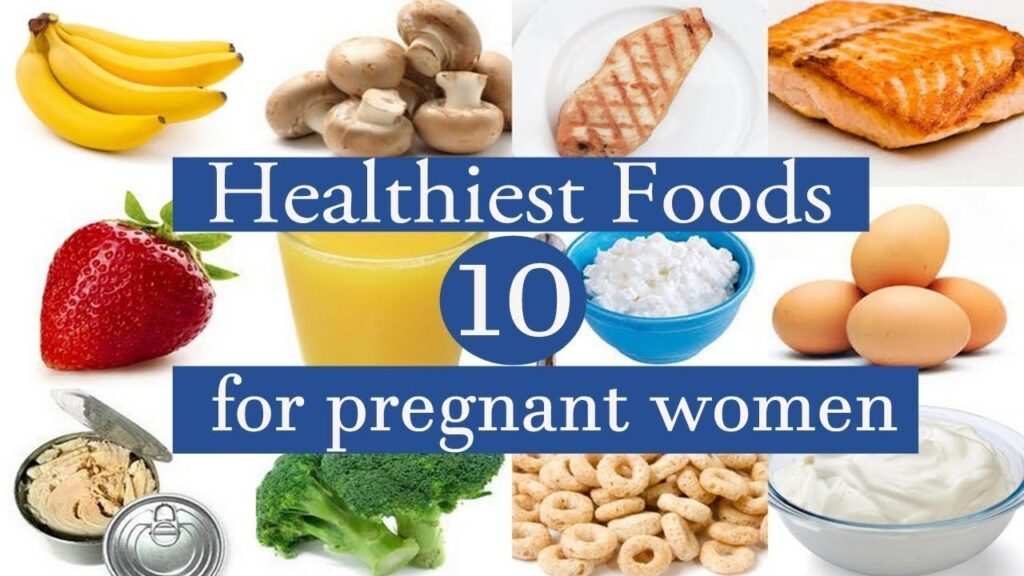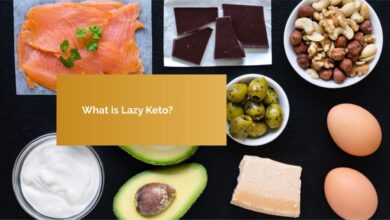- Introduction
- Why Nutrition Matters During Pregnancy (Pregnancy and Weight Control)
- Understanding Weight Control While Pregnant
- d Weight Control)
- Essential Nutrients for a Healthy Pregnancy
- Protein Power: Building Blocks for Baby
- The Importance of Healthy Fats
- Carbohydrates: Choosing the Right Sources
- Vitamins and Minerals You Can’t Ignore
- Top Foods to Include for a Healthy Pregnancy and Weight Control
- Leafy Greens: Nature’s Superfood
- Lean Proteins: Chicken, Fish, and Plant-Based Options
- Whole Grains: Energy That Lasts
- Fruits: Sweet and Nutrient-Packed
- Dairy and Alternatives: Calcium for Strong Bones
- Nuts and Seeds: Tiny but Mighty
- Foods to Avoid or Limit During Pregnancy
- Tips to Manage Weight Gain Without Compromising Nutrition
- How to Incorporate These Foods Into Your Daily Diet
- Sample Meal Plan for Healthy Pregnancy and Weight Control
- Hydration: The Often Overlooked Key to Health
- The Role of Physical Activity in Pregnancy Weight Management
- Common Myths About Pregnancy and Weight Control Debunked
- The Link Between Obesity, Pregnancy, and Future Health Risks
- When to Talk to Your Healthcare Provider About Weight and Diet
- Final Thoughts and Encouragement
Foods to Eat for a Healthy Pregnancy and Weight Control
Introduction( Pregnancy and Weight Control)
Pregnancy is a beautiful journey, but it also brings a whirlwind of changes—physical, emotional, and nutritional. If you’re someone from the United States, United Kingdom, Ghana, or Nigeria, navigating pregnancy while keeping weight in check can feel like a balancing act. Are you wondering how to eat right without piling on those extra pounds? You’re not alone. Let’s dive into the best foods to eat during pregnancy that support your baby’s growth and help you control your weight naturally.
Why Nutrition Matters During Pregnancy
You’ve probably heard the phrase, “You’re eating for two now.” While this is true in terms of nutrient needs, it doesn’t mean doubling your calories. Proper nutrition ensures your baby gets the essential building blocks for development and helps maintain your own health. Plus, good nutrition can reduce the risk of complications like gestational diabetes, preeclampsia, and excessive weight gain.
Understanding Weight Control While Pregnant
Managing weight during pregnancy is not about dieting but about mindful eating. Healthy weight gain supports your baby’s growth but staying within recommended limits prevents long-term health risks for you and your child. According to the American College of Obstetricians and Gynecologists (ACOG), weight gain recommendations vary depending on your pre-pregnancy BMI. Understanding this helps you set realistic goals.
Essential Nutrients for a Healthy Pregnancy
Protein Power: Building Blocks for Baby
Protein is the hero of pregnancy nutrition—it supports baby’s tissue growth and helps maintain your muscle strength. Aim for lean sources like chicken breast, fish, eggs, legumes, and tofu. Did you know? Protein also helps keep you fuller longer, which naturally controls overeating.
The Importance of Healthy Fats
Healthy fats, especially omega-3 fatty acids found in salmon, flaxseeds, and walnuts, are crucial for your baby’s brain development. These fats also aid in regulating your appetite and metabolism, helping with weight control.
Carbohydrates: Choosing the Right Sources
Carbs are your main energy source, but quality matters. Opt for complex carbs from whole grains, sweet potatoes, and legumes to avoid blood sugar spikes that can lead to excess fat storage.
Vitamins and Minerals You Can’t Ignore
Folate, iron, calcium, and vitamin D top the list. Folate prevents birth defects, iron supports increased blood volume, calcium builds strong bones, and vitamin D helps with calcium absorption. Incorporate a colorful variety of fruits and veggies to hit these micronutrients.
Top Foods to Include for a Healthy Pregnancy and Weight Control
Leafy Greens: Nature’s Superfood
Spinach, kale, and swiss chard pack a punch with fiber, vitamins, and minerals but are low in calories. Fiber keeps digestion smooth and prevents constipation—a common pregnancy complaint.
Lean Proteins: Chicken, Fish, and Plant-Based Options
Grilled chicken breast, baked fish (low in mercury), lentils, and chickpeas are excellent for muscle maintenance and satiety.
Whole Grains: Energy That Lasts
Swap white bread and rice for quinoa, brown rice, oats, and barley. These stabilize blood sugar and provide sustained energy without crashes.
Fruits: Sweet and Nutrient-Packed
Berries, apples, and oranges offer antioxidants and hydration with natural sweetness, helping curb sugar cravings healthily.
Dairy and Alternatives: Calcium for Strong Bones
Low-fat yogurt, cheese, or fortified plant-based milks provide calcium and protein. Calcium supports your baby’s developing skeleton and your own bone health.
Nuts and Seeds: Tiny but Mighty( Pregnancy and Weight Control)
Almonds, chia seeds, and pumpkin seeds deliver healthy fats, protein, and fiber. A handful daily makes a great snack that’s both filling and nutritious.
Foods to Avoid or Limit During Pregnancy
Pregnancy is a time when you’re not just eating for yourself but also nourishing a growing life inside you. While focusing on healthy foods is important, knowing which foods to avoid or limit is equally crucial to protect your baby’s development and your own well-being. Let’s take a closer look at some common foods and beverages you should steer clear of or consume cautiously during pregnancy.
1. High-Mercury Fish
Fish are a great source of protein and omega-3 fatty acids, which support brain development in your baby. However, some fish contain high levels of mercury—a heavy metal that can harm your baby’s developing nervous system. Avoid fish like shark, swordfish, king mackerel, and tilefish. Instead, opt for low-mercury choices such as salmon, tilapia, shrimp, and canned light tuna. The FDA recommends limiting canned light tuna to about 12 ounces (two average meals) per week during pregnancy.
Why the fuss? Mercury accumulates in the body and crosses the placenta, which can negatively affect your baby’s brain and nervous system development.
2. Raw and Undercooked Seafood, Meat, and Eggs( Pregnancy and Weight Control)
Raw or undercooked foods can harbor harmful bacteria and parasites, including Listeria, Salmonella, and Toxoplasma. These infections can cause miscarriage, premature birth, or severe illness in newborns. Examples include sushi made with raw fish, rare or undercooked steaks, runny eggs, and unpasteurized fish products.
Make sure your seafood, poultry, meat, and eggs are thoroughly cooked to a safe internal temperature. For eggs, avoid dishes with raw or lightly cooked eggs like homemade mayonnaise or certain desserts (e.g., mousse or tiramisu) unless pasteurized eggs are used.
3. Unpasteurized Dairy Products
Soft cheeses like Brie, Camembert, blue cheese, feta, and queso fresco can sometimes be made from unpasteurized milk and may carry Listeria bacteria. This bacteria can cause listeriosis, which is particularly dangerous during pregnancy.
Always check labels and opt for pasteurized dairy products. Pasteurization kills harmful bacteria while preserving essential nutrients like calcium and vitamin D.
4. Processed and Deli Meats( Pregnancy and Weight Control)
Cold cuts, hot dogs, and deli meats may be contaminated with Listeria unless heated to steaming hot just before eating. If you crave a sandwich with deli meat, it’s safer to warm it thoroughly to reduce infection risk.
5. Excessive Caffeine
While moderate caffeine intake is generally considered safe during pregnancy (up to 200 mg per day, roughly one 12-ounce cup of coffee), too much caffeine may increase risks like low birth weight or miscarriage. Remember that caffeine isn’t just in coffee—it’s also in tea, soda, energy drinks, and chocolate.
Try to limit your caffeine sources and hydrate with water, herbal teas (safe varieties like ginger or peppermint), or decaffeinated beverages.
6. Alcohol
There’s no known safe amount of alcohol during pregnancy. Drinking alcohol can cause fetal alcohol spectrum disorders (FASDs), leading to lifelong physical and mental disabilities. The best advice is to avoid alcohol completely during pregnancy.
7. High-Sugar and Highly Processed Foods( Pregnancy and Weight Control)
While not strictly “off-limits,” foods high in added sugars and heavily processed snacks can contribute to excessive weight gain, gestational diabetes, and poor nutrition. Candy, sugary sodas, fast food, and pastries often offer empty calories without the vitamins and minerals your body needs.
Eating these occasionally is fine, but try to focus on whole, nutrient-rich foods that fuel both you and your baby.
8. Artificial Sweeteners
Some artificial sweeteners are considered safe in moderation, but others like saccharin should be avoided due to potential risks. Stevia and aspartame are generally recognized as safe, but it’s a good idea to limit intake and prioritize natural sweeteners from fruit.
9. Herbal Teas and Supplements
Not all herbal teas and supplements are safe during pregnancy. Some herbs can stimulate contractions or have harmful effects on the fetus. Always consult your healthcare provider before consuming any herbal products.
10. Raw Sprouts
Raw sprouts such as alfalfa, clover, radish, and mung bean sprouts can be contaminated with bacteria like Salmonella or E. coli. Since they’re often eaten raw in salads or sandwiches, it’s safer to avoid them or cook them thoroughly.
Why Avoiding These Foods Matters( Pregnancy and Weight Control)
Eating unsafe foods during pregnancy increases risks of infections, birth defects, and pregnancy complications. For example, listeriosis caused by Listeria can lead to miscarriage, stillbirth, or severe neonatal illness. Mercury exposure can impair brain development, and high caffeine or alcohol intake is linked to low birth weight and developmental delays.
Your body is more vulnerable during pregnancy, and so is your baby. Making mindful choices helps ensure a safer pregnancy journey and a healthier baby.
Practical Tips to Avoid These Foods( Pregnancy and Weight Control)
- Read food labels carefully for pasteurization and additives
- When eating out, ask how dishes are prepared and avoid raw or undercooked options
- Cook meat, fish, and eggs thoroughly and use a food thermometer if possible
- Limit caffeine and avoid alcoholic beverages entirely
- Focus meals on fresh, whole foods and prepare your own snacks when possible
Helpful Resources
For more detailed guidelines on foods to avoid during pregnancy, check these trusted links:
Remember, staying informed about what to avoid is just as important as knowing what to eat. If ever in doubt, your healthcare provider or a registered dietitian can offer tailored advice to keep you and your baby safe and healthy.
Tips to Manage Weight Gain Without Compromising Nutrition
- Eat small, frequent meals to keep blood sugar stable
- Prioritize nutrient-dense foods over empty calories
- Listen to hunger and fullness cues
- Avoid eating out of boredom or stress( Pregnancy and Weight Control)
How to Incorporate These Foods Into Your Daily Diet
Try adding spinach to your morning smoothie, swapping chips for nuts as snacks, and baking fish with herbs for dinner. Small changes can make a big difference over time.
Sample Meal Plan for Healthy Pregnancy and Weight Control
- Breakfast: Oatmeal topped with berries and chia seeds
- Snack: Greek yogurt with a sprinkle of almonds
- Lunch: Grilled chicken salad with mixed greens and quinoa
- Snack: Apple slices with peanut butter( Pregnancy and Weight Control)
- Dinner: Baked salmon, steamed broccoli, and brown rice
Hydration: The Often Overlooked Key to Health
Drinking enough water supports digestion, nutrient transport, and appetite regulation. Aim for at least 8 cups a day, more if active or in hot climates.
The Role of Physical Activity in Pregnancy Weight Management( Pregnancy and Weight Control)
Light to moderate exercise—like walking, prenatal yoga, or swimming—helps control weight, boosts mood, and improves circulation. Always check with your healthcare provider before starting any new exercise routine.
Common Myths About Pregnancy and Weight Control Debunked
- Myth: “Pregnant women should eat anything and everything.” Truth: Quality matters more than quantity.
- Myth: “Exercise can harm my baby.” Truth: With approval, exercise is safe and beneficial.
- Myth: “Skipping meals controls weight.” Truth: Skipping meals can harm you and your baby and lead to overeating later.
The Link Between Obesity, Pregnancy, and Future Health Risks( Pregnancy and Weight Control)
Excessive weight gain increases risks for gestational diabetes, hypertension, and delivery complications. It can also predispose children to obesity and metabolic disorders later in life. Taking control early is key.
When to Talk to Your Healthcare Provider About Weight and Diet(Pregnancy and Weight Control))
If you have concerns about your weight or nutrition during pregnancy, your healthcare provider can offer personalized advice and support, including referrals to dietitians if needed.
Read Also Safe Weight Loss Foods During Pregnancy: Ultimate Guide to Healthy Slimming & High-Energy Mums
Final Thoughts and Encouragement( Pregnancy and Weight Control)
Pregnancy is a unique time to nurture both yourself and your baby. By focusing on nutrient-rich foods and mindful eating, you can enjoy a healthy pregnancy and keep your weight in check. Remember, it’s not about perfection but progress. Every small step counts.
FAQs
1. Can I lose weight during pregnancy if I’m obese?( Pregnancy and Weight Control)
While weight loss is generally not recommended during pregnancy, obese women should aim for controlled weight gain under medical supervision. Always consult your healthcare provider before making changes.
2. Are all fruits safe to eat during pregnancy?
Most fruits are safe and beneficial. However, wash them thoroughly and avoid unpasteurized fruit juices to reduce infection risks.
3. How much protein do I need during pregnancy?( Pregnancy and Weight Control)
Pregnant women typically need about 70 grams of protein per day, but this can vary. Including lean protein sources at every meal helps meet this goal.
4. Is it safe to exercise every day during pregnancy?
Moderate daily exercise is usually safe for healthy pregnancies, but intensity and type should be discussed with your doctor.
5. What if I have cravings for unhealthy foods?
It’s normal to have cravings. Try to satisfy them in moderation and balance with healthy choices. Sometimes cravings signal nutrient needs, so listen to your body.(Pregnancy and Weight Control))





